By Richard Burden
The following article was written by Richard Burden in his capacity as trustee of the Balfour Project. It explains why the Balfour Project charity opposes the Bill. Until 2019, Burden was an MP chairing the Britain Palestine All Party Parliamentary Group at Westminster.
In June, the UK Government has published a Bill that will both jettison Britain’s respect for international laws that ban the acquisition of territory by conquest and ignore UN rules signed by the UK over a decade ago calling on businesses to ensure their commercial dealings abroad uphold human rights. The Bill will also uniquely shield human rights abuses by Israel from scrutiny by UK public bodies, giving it an open-ended impunity that the Bill does not apply to any other country in the world.
The Economic Activity of Public Bodies (Overseas Matters) Bill was published on Monday 19 June and is due to be debated by the House of Commons in the first week of July. Its stated purpose is “to prevent public bodies from being influenced by political or moral disapproval of foreign states when taking certain economic decisions.”
It means elected local authorities and other public bodies (e.g. universities and pension funds) will be forced to ignore ethical issues when deciding whether or not to invest in or procure services from companies whose overseas business dealings are complicit in human rights and other abuses abroad.
So, in other words – no questioning of companies operating in Russian- occupied Eastern Ukraine or in Myanmar; no scrutiny of companies working with Chinese authorities involved in the persecution of Uyghur Muslims; no objection to business dealings with companies involved in the sale of arms to Saudi Arabia: no concern about the import of goods from illegal settlements in the West Bank.
If passed, the Bill will drive a coach and horses through Britain’s compliance with Guiding Principles on Business and Human Rights published by the United Nations to which the UK signed up over a decade ago. Both the UN Guiding Principles and an Action Plan to implement them published by the UK Government itself make clear that businesses have a corporate responsibility to uphold human rights and to monitor records of those with whom they have commercial dealings. Neither document suggests it is acceptable for businesses to simply look the other way on these issues.
Apparently stung by criticisms like these when they announced their plans over a year ago, the Government is now saying that people should have no fears that the new Bill will outlaw ethical investment action by UK public bodies against genuine human rights abuses abroad. The “safeguard” proposed is a provision in the Bill which will enable Ministers to exempt individual countries from the general prohibitions contained in the Bill. They are already briefing that such an exemption will be issued in relation to Ukraine.
But why should respect for human rights be the exception rather the rule for UK public bodies, particularly when the UK’s endorsement of UN Guiding Principles requires businesses to uphold those rights as a matter of course in their commercial decisions? Do Ministers seriously believe that public bodies in the UK should have lower standards of corporate social responsibility than those expected of private sector companies?
Putting Israel and its illegal settlements above the law:
But there is an even worse sting in the tail. A clause in the Bill explicitly precludes Ministers from making any exemption in respect of Israel, the Occupied Palestinian Territories, or the Golan Heights. No Minister, now or in the future, would have the power to vary the prohibition on ethical investment decisions by public bodies related to those territories, however serious the human rights situation there may be at the time. It’s a clause that grants Israel an open-ended impunity – and one that the Bill does not give to any other country. At the very time that thousands of Israelis themselves are taking to the streets every week in protest against the threat posed to democracy by the most extreme government in their country’s history, for UK Ministers to so blatantly try to exceptionalise Israel from scrutiny is nothing short of breathtaking.
Not only this, but the Government’s Bill flies in the face of United Nations resolutions for which the UK has itself voted, and of international law as a whole. UN Security Council Resolution 2334, passed in 2016, expressly calls on member states to distinguish in their dealings between Israel itself and its activities in the territories it occupies, like its illegal settlements in East Jerusalem and the rest of the West Bank. This Bill will penalise public authorities which try to comply with the UK’s responsibilities as a permanent member of the UN Security Council.
By expressly including reference to the Golan Heights, meanwhile, the Bill ignores the fact that this territory has been formally annexed by Israel – a move that has been explicitly acknowledged as illegal by both the UN and every UK Government until now, irrespective of party. The same applies to East Jerusalem. Indeed, in its statements and actions, the current Government of Israel is transforming occupation of the West Bank into illegal annexation too – something on which the International Court of Justice will give an opinion next year. If passed, this Bill will also inhibit the UK from acting on the Court’s opinion if it finds that Israel’s ongoing domination of the West Bank and Gaza does indeed break international law.
A threat to freedom of speech:
And if all this was not enough, the Bill even threatens freedom of speech as well. It will prohibit members of public bodies even discussing ethical investment considerations in relation to their dealings with foreign countries. Indeed, one interpretation of the Bill’s clauses suggests it may even become illegal for UK citizens to ask members of a public body to take moral or ethical issues into account when taking commercial decisions!
Why MPs and Peers should oppose the Bill:
So, this is a Bill that is wrong on so many counts. Will it go through? Any political party that believes in upholding human rights and the rule of international law without fear or favour will have no justification in doing anything other than voting against this dreadful piece of legislation. These are issues which should have personal salience for Keir Starmer as a former human rights lawyer himself.
Of course, Ministers will whip Conservative MPs to support the Bill and the current Parliamentary arithmetic probably means it will get through the Commons. Even so, let us hope that some Conservative MPs who respect international law will follow their consciences and say no. The public opposition to the Bill that has already been expressed by the Union of Jewish Students and other groups should encourage more MPs to vote against the Bill, irrespective of party. As citizens who remain true to the UK’s respect for human rights, it is vital we lobby our constituency MPs to oppose the Bill when it comes to Parliament for its 2nd Reading debate in a few weeks’ time.
Even if the Bill passes the Commons, that will not be the end of the story. There is every chance that the more independently-minded House of Lords will – across party lines – give this pernicious and unnecessary Bill the mauling it deserves.
https://righttoboycott.org.uk/
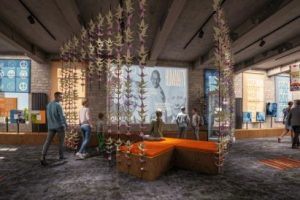 The museum is aiming to reopen to the public in summer 2024. Supported through The National Lottery Heritage Fund, the project will focus on creating engaging and accessible exhibitions and developing a dedicated learning space in its new home. Opening in these new premises will create many more opportunities for visitors, researchers, and community groups to explore the diverse range of stories told by the museum’s collection.
The museum is aiming to reopen to the public in summer 2024. Supported through The National Lottery Heritage Fund, the project will focus on creating engaging and accessible exhibitions and developing a dedicated learning space in its new home. Opening in these new premises will create many more opportunities for visitors, researchers, and community groups to explore the diverse range of stories told by the museum’s collection.
 PeaceJam is an international organisation led by 14 Nobel Peace Laureates working to support a generation of future Nobel Peace Laureates. Their vision is “To Make Peace a Verb”.
PeaceJam is an international organisation led by 14 Nobel Peace Laureates working to support a generation of future Nobel Peace Laureates. Their vision is “To Make Peace a Verb”.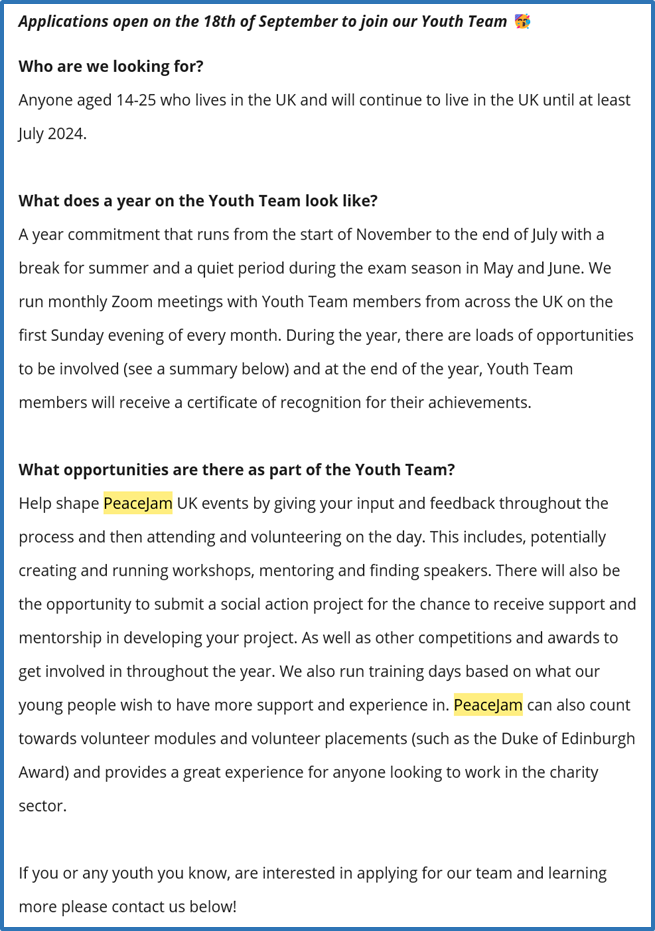
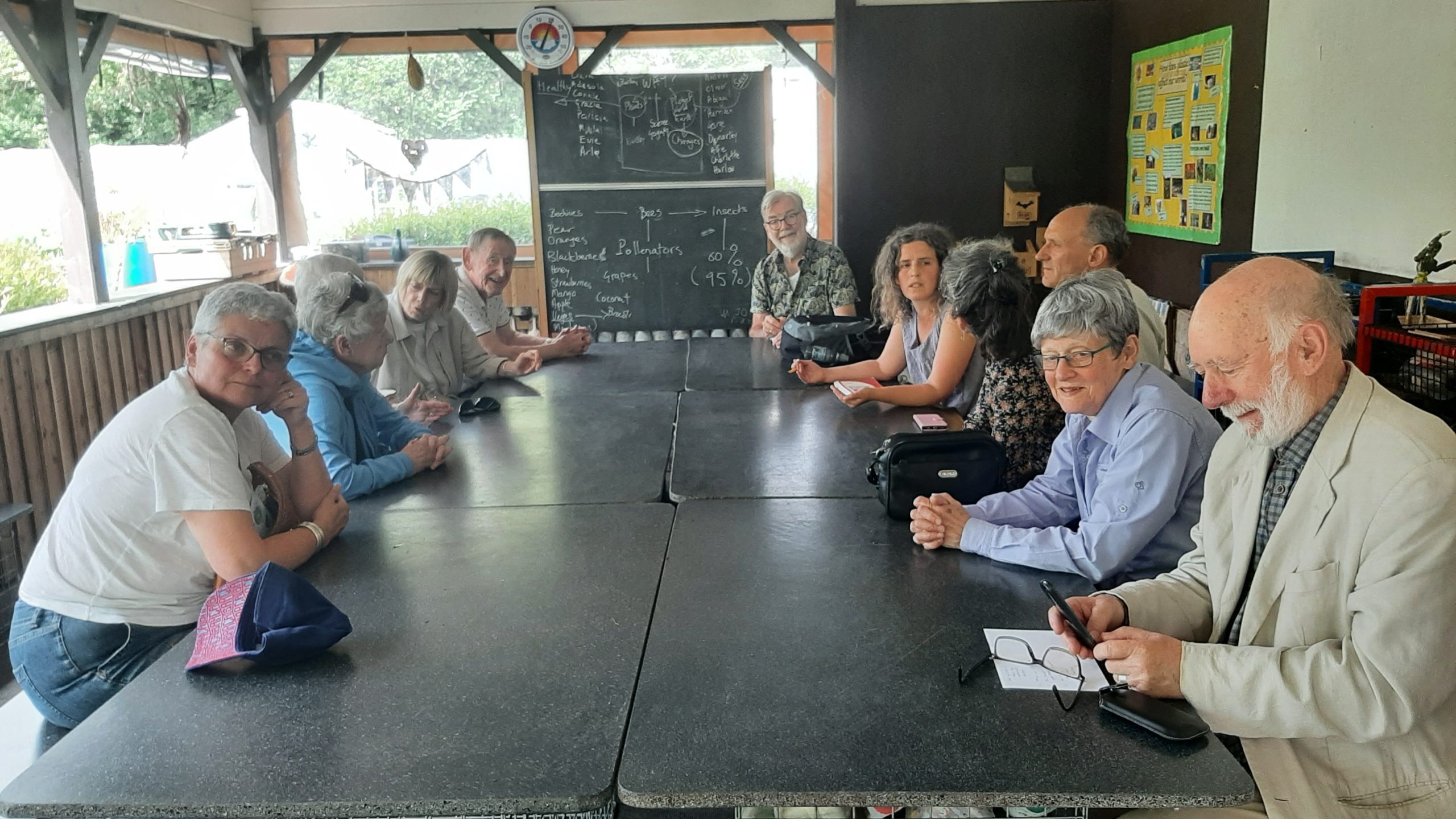
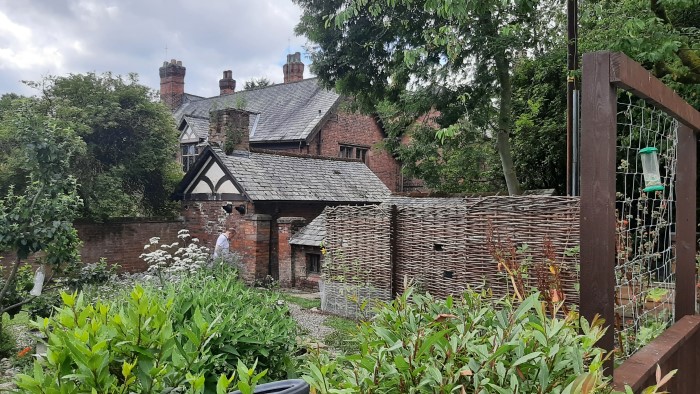
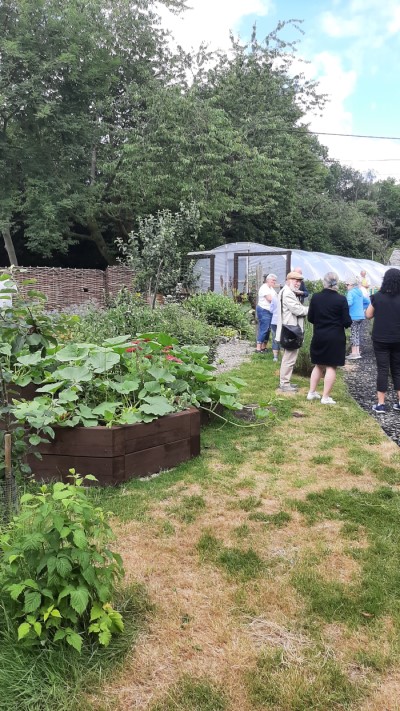
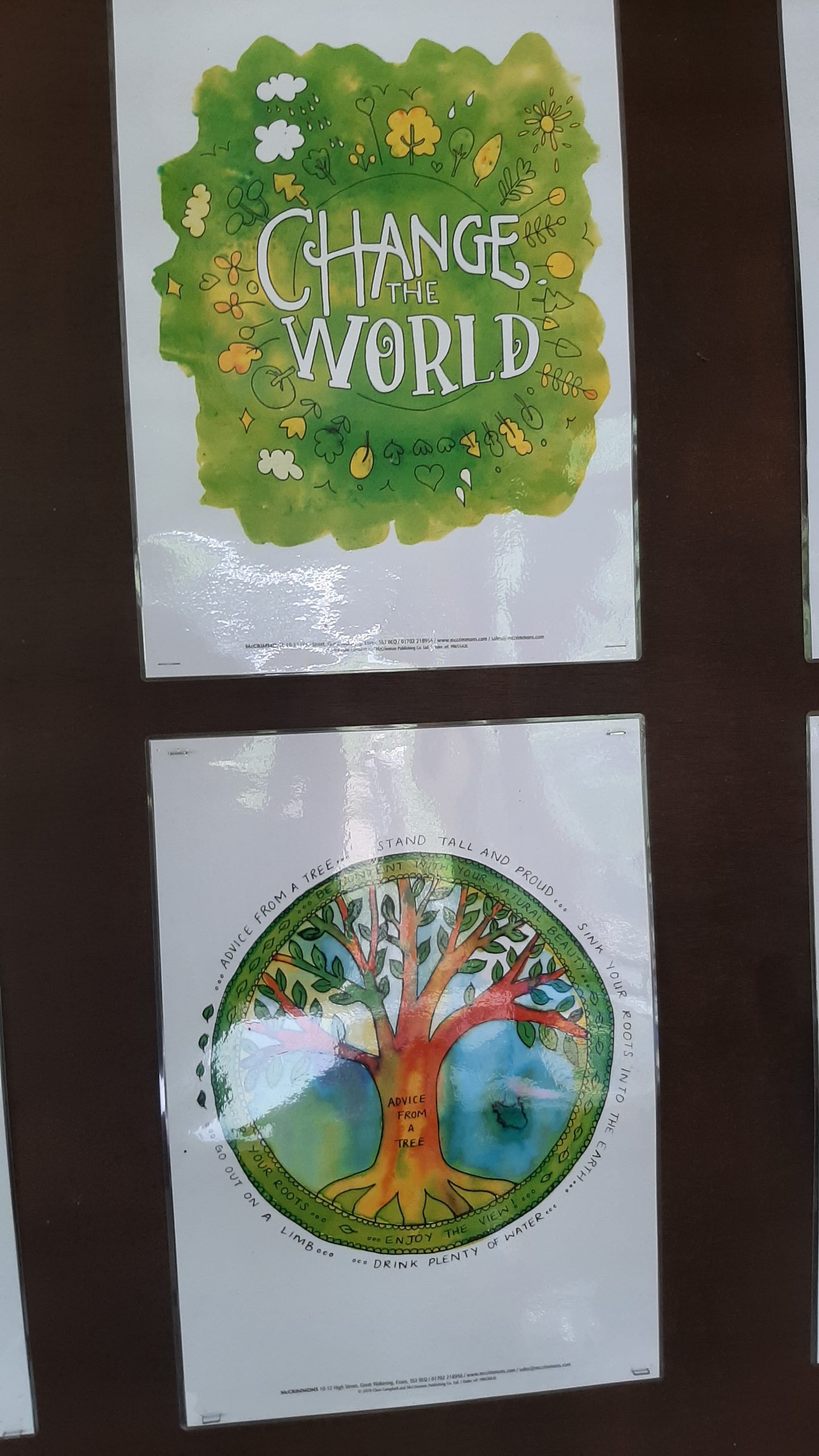
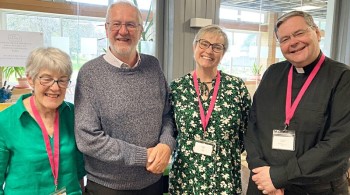 Christine Allen, who is the Director of CAFOD, in her contribution said, “Work for justice is part of preaching the Gospel.” Speaking about the Sustainable Development Goals (SDGs) she opined that Catholic Social Teaching went further by addressing the sin of structural injustice. Adding that some people are rich because some people are poor and such injustice is clearly seen in our economics.
Christine Allen, who is the Director of CAFOD, in her contribution said, “Work for justice is part of preaching the Gospel.” Speaking about the Sustainable Development Goals (SDGs) she opined that Catholic Social Teaching went further by addressing the sin of structural injustice. Adding that some people are rich because some people are poor and such injustice is clearly seen in our economics. I am grateful to SPARK and the Leeds Justice and Peace Commission for the opportunity to be at this year’s conference. I urge young people to join me as advocates for our common home.
I am grateful to SPARK and the Leeds Justice and Peace Commission for the opportunity to be at this year’s conference. I urge young people to join me as advocates for our common home.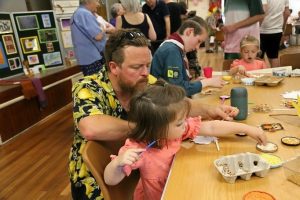 People were also invited to try out various creative activities, all of them linked to the theme of nature – such as making bees and flowers from paper, painting pebbles or sowing salad seeds. The children in particular threw themselves into this, and several told us that the afternoon had been “Great fun!”. Meanwhile those more advanced in years were able to sit down and chat while they enjoyed a cornucopia of cakes, scones and strawberries.
People were also invited to try out various creative activities, all of them linked to the theme of nature – such as making bees and flowers from paper, painting pebbles or sowing salad seeds. The children in particular threw themselves into this, and several told us that the afternoon had been “Great fun!”. Meanwhile those more advanced in years were able to sit down and chat while they enjoyed a cornucopia of cakes, scones and strawberries.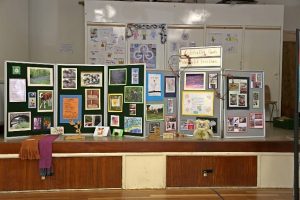 Throughout the afternoon, there was a real party atmosphere and a feeling that parishioners were not just ‘visiting’ an event but were owning it by their enthusiastic participation in all that was happening. With all ages represented from across our 3 church communities, the celebration bore witness to a real sense of unity across the parish. Truly a gift and a blessing!
Throughout the afternoon, there was a real party atmosphere and a feeling that parishioners were not just ‘visiting’ an event but were owning it by their enthusiastic participation in all that was happening. With all ages represented from across our 3 church communities, the celebration bore witness to a real sense of unity across the parish. Truly a gift and a blessing!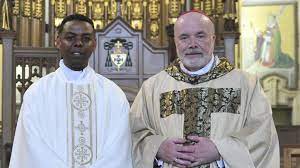 I am Father Yemane Aradom. I was born in Sudan and raised in Eritrea. My childhood was a happy one and I grew up in a loving Christian family. I will tell you the main events of my story which took me from Africa to Europe as a refugee. Forgive me for not being able to tell you the whole story.
I am Father Yemane Aradom. I was born in Sudan and raised in Eritrea. My childhood was a happy one and I grew up in a loving Christian family. I will tell you the main events of my story which took me from Africa to Europe as a refugee. Forgive me for not being able to tell you the whole story.